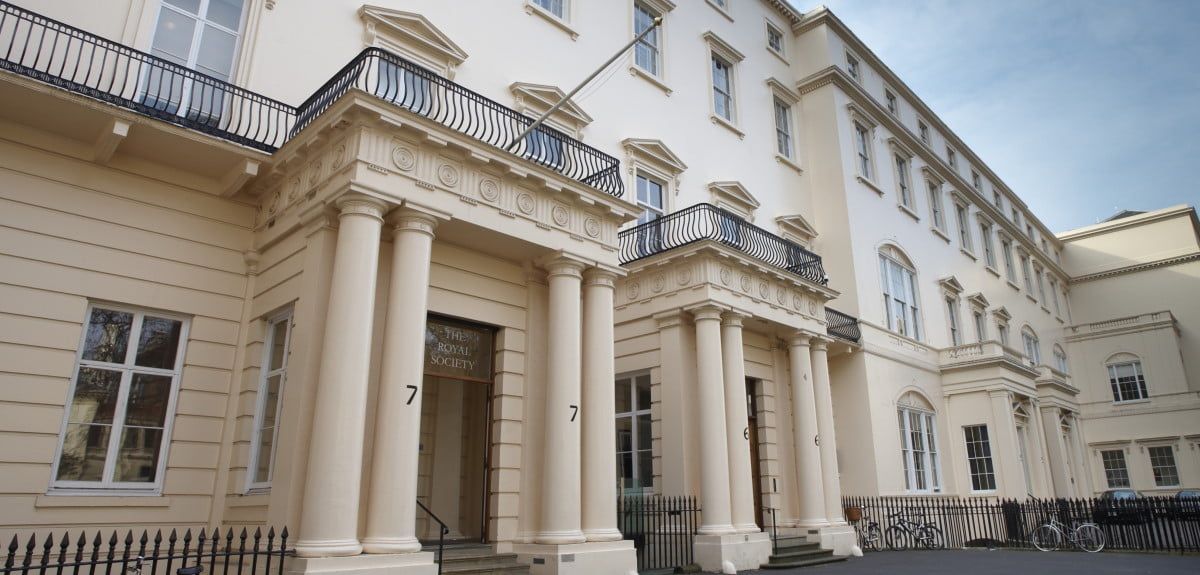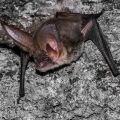
Credit: Royal Society
Eight Oxford researchers elected to Royal Society
Eight scientists from the University of Oxford have joined the Royal Society as Fellows.
All were selected for their outstanding contributions in various scientific fields and are as follows:
Professor Fernando Alday of the Mathematical Institute becomes a Fellow for his leading work on mathematical string theory. Professor Alday is well-known for the development of mathematical tools to understand fundamental questions in Quantum Field Theory and Quantum Gravity. His most important contributions involve surprising dualities among different theories and observables in high energy theoretical physics.
For his fundamental contributions across a wide range of fields by combining state-of-the-art mathematics and methodologies with cutting-edge applications, Professor Alain Goriely, Statutory Chair of Mathematical Modelling at the Mathematical Institute is elected to the Royal Society as a Fellow. Professor Goriely’s work has been central to the development of a complete mathematical theory of biological growth and he has made major contributions to our understanding of brain mechanics, morphogenesis, and trauma.
Professor Peter Hore of the Department of Chemistry is elected for his pioneering work on the biophysical chemistry of electron and nuclear spins and their effects on chemical reactivity. Using specifically developed spin dynamics simulation methods and sensitive spectroscopic techniques, Professor Hore has made major contributions to our understanding of how migratory songbirds sense the Earth’s magnetic field as an aid to orientation and navigation.
For his internationally renowned leadership in the field of phylodynamics, Professor Oliver Pybus of the Department of Zoology is elected to the Royal Society as a Fellow. Professor Pybus invented key tools for inferring population dynamics from gene sequences and demonstrated that important epidemiological parameters can be estimated from pathogen genomes. He has repeatedly provided conceptual and empirical insights into pathogen dynamics that were unavailable from the analysis of traditional epidemiological data.
Professor Jordan Raff, César Milstein Chair of Cancer Cell Biology at the Sir William Dunn School of Pathology, becomes a fellow for his seminal discoveries on the function and formation of centrosomes. Professor Raff showed that fruit flies that have too many centrosomes are predisposed to tumours, suggesting a causative link between centrosome amplification and cancer, as first proposed over 100 years ago. He also showed that, unexpectedly, fruit flies can proceed through most of development without centrosomes, changing the textbook view that centrosomes are essential for cell division.
For her research on the interactions between life and the composition of Earth’s oceans and atmosphere Professor Ros Rickaby, Chair of Geology in the Department of Earth Sciences is named a Fellow at the Royal Society. Using an innovative combination of geochemical, microbiological, and genomic approaches, Professor Rickaby’s highly original research uses the past to understand ocean oxygenation, the biological response to ocean acidification, the critical role of metal-bearing-enzymes in the ocean, and the role of alkalinity in driving atmospheric CO2 and climate change.
Professor Ben Sheldon, Luc Hoffmann Professor of Field Ornithology at the Department of Zoology is elected a Fellow for his research using long-term studies of wild bird populations. Professor Sheldon has led the field in using new techniques such as network theory, together with molecular and quantitative genetics, to determine why natural and sexual selection can act antagonistically, why evolution is rapid even in mobile species, and how novel behaviours can spread across and establish in wild populations.
For his outstanding work with quarks, including the first measurement of b-quark production, Professor Ian Shipsey, Henry Moseley Centenary Professor of Experimental Physics in the Department of Physics becomes a Fellow at the Royal Society. Professor Shipsey’s contribution to particle physics includes work on the Flavour problem, the Standard Model‘s inability to explain three generations of fermions.
Sir Adrian Smith, President of the Royal Society said: ‘It is an honour to welcome so many outstanding researchers from around the world into the Fellowship of the Royal Society.
‘Through their careers so far, these researchers have helped further our understanding of human disease, biodiversity loss and the origins of the universe. I am also pleased to see so many new Fellows working in areas likely to have a transformative impact on our society over this century, from new materials and energy technologies to synthetic biology and artificial intelligence. I look forward to seeing what great things they will achieve in the years ahead.’
 New study on Amazonia's fire crises urges action ahead of the next burning season
New study on Amazonia's fire crises urges action ahead of the next burning season
 New heart disease calculator could save lives by identifying high-risk patients missed by current tools
New heart disease calculator could save lives by identifying high-risk patients missed by current tools
 Modern Slavery and Human Rights Policy and Evidence Centre moves to Oxford University after receiving continuation funding
Modern Slavery and Human Rights Policy and Evidence Centre moves to Oxford University after receiving continuation funding
 Study shows that island bats are valuable allies for farmers
Study shows that island bats are valuable allies for farmers
 Study reveals how humanity could unite to address global challenges
Study reveals how humanity could unite to address global challenges